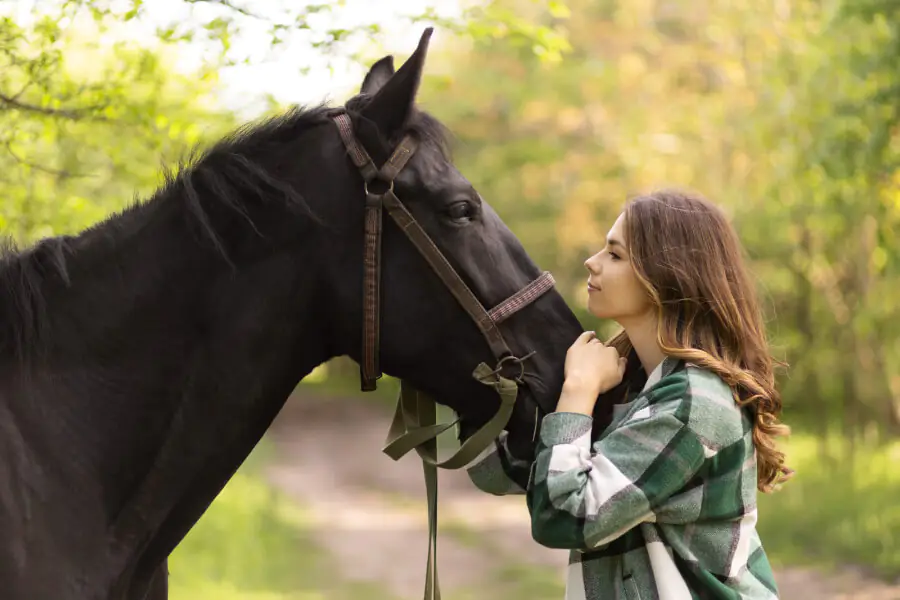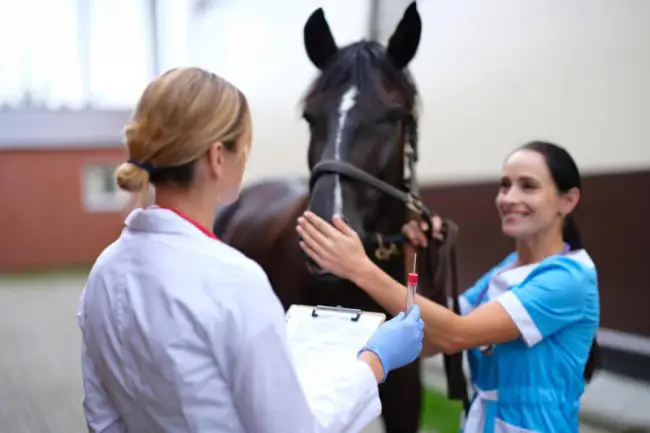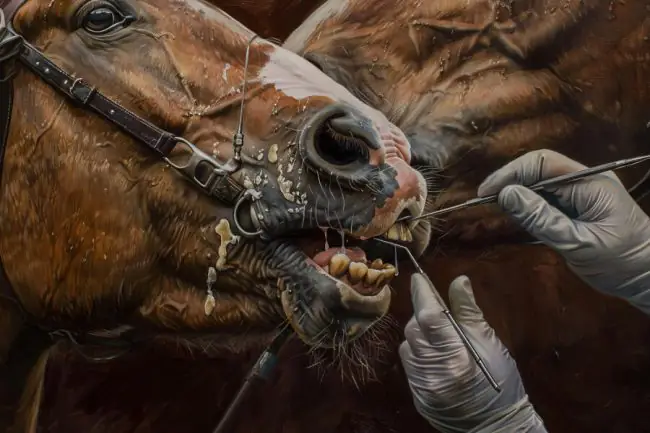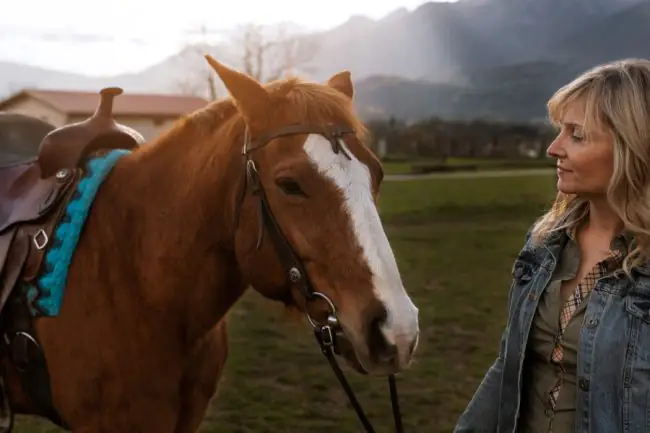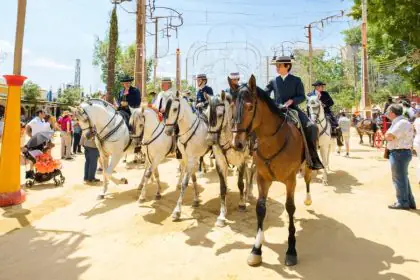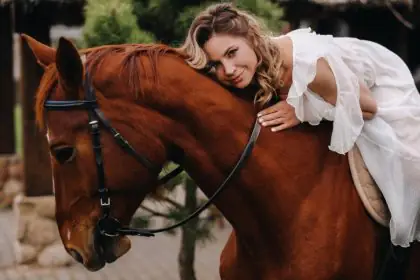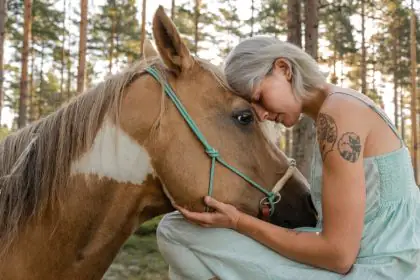Horses are magnificent creatures that capture our hearts with their grace and strength. But just like any other living being, they have a lifespan that is influenced by various factors.
Whether you’re a seasoned horse owner or considering adopting your first equine companion, understanding what contributes to a horse’s longevity is crucial.
This guide will provide insights into how long horses can live and share tips for ensuring they lead healthy and happy lives.
Understanding the Average Lifespan of Horses
The lifespan of a horse can vary greatly depending on several factors such as breed, genetics, and the level of care they receive throughout their lives.
Generally speaking, horses live longer today than they did decades ago, thanks to advancements in veterinary care and better understanding of equine nutrition and management.
What Is the Typical Age Range for Horses?
On average, horses live between 25 to 30 years, but some can live well into their 30s and even 40s with excellent care. Ponies, in particular, tend to have longer lifespans than larger horse breeds. Some ponies have been known to live beyond 40 years, while larger breeds like Thoroughbreds may have shorter lifespans due to their genetic predispositions and the demands of competitive sports.
Lifespan Differences Between Breeds
The breed of a horse plays a significant role in its potential lifespan. For example, Arabian horses are known for their stamina and longevity, often living into their mid-30s.
In contrast, larger breeds such as Draft horses tend to have shorter lifespans, typically ranging from 15 to 25 years. These differences are influenced by genetics, purpose (such as racing or working), and size, with smaller breeds generally living longer than their larger counterparts.
Factors That Affect a Horse’s Lifespan
Several factors can affect how long a horse lives. Understanding these elements can help horse owners provide the best possible care for their equine companions.
Genetics and Breed Influence
Genetics is one of the most significant factors influencing a horse’s lifespan. Horses that come from a line of healthy, long-living ancestors are more likely to have longer lifespans themselves. The breed also matters; for example, Appaloosas and Quarter Horses are known for their hardy nature, which can contribute to a longer life.
Diet and Nutrition Impact
A well-balanced diet is crucial for a horse’s health and longevity. Proper nutrition, including the right balance of hay, grains, vitamins, and minerals, helps maintain optimal body condition, supports immune function, and prevents diseases. A diet high in quality forage and low in excess sugars and starches can help reduce the risk of issues such as laminitis and colic, both of which can shorten a horse’s life.
The Role of Exercise and Activity
Regular exercise is essential for keeping a horse healthy, both physically and mentally. Horses that receive consistent exercise tend to have better muscle tone, cardiovascular health, and mental well-being. A mix of turnout time in pastures and structured workouts can help keep a horse fit, reduce boredom, and prevent behavioral issues.
Importance of Veterinary Care and Disease Prevention
Routine veterinary care is a cornerstone of equine longevity. Regular check-ups, vaccinations, deworming schedules, and dental care help prevent and manage diseases. Early detection of health issues like arthritis, Cushing’s disease, or respiratory conditions can lead to better management and improved quality of life.
Common Health Issues That Shorten a Horse’s Life
Just like humans, horses can suffer from a range of health problems that can significantly impact their lifespan. Being aware of these common issues can help owners take preventative measures.
Identifying and Preventing Common Horse Diseases
Diseases such as colic, laminitis, and equine influenza are among the leading causes of early mortality in horses. Regular health checks, a balanced diet, and proper exercise can help mitigate the risk of these diseases. Knowing the symptoms of these common ailments and acting quickly when they arise is crucial for horse owners.
How Dental Health Affects Longevity
Dental health is often overlooked but is a vital aspect of a horse’s overall well-being. Poor dental care can lead to difficulty eating, weight loss, and systemic infections. Regular dental check-ups and floating (filing down sharp points on teeth) can prevent these issues and contribute to a horse’s longer and healthier life.
Tips for Extending Your Horse’s Lifespan
To ensure your horse lives a long, healthy life, it’s important to focus on several key areas of care.
Proper Nutrition and Feeding Practices
Providing a balanced diet tailored to your horse’s age, weight, and activity level is essential. High-quality forage, supplemented with the necessary grains and minerals, can help maintain their health. Avoid overfeeding grains, which can lead to metabolic disorders.
Regular Exercise and Mental Stimulation
Consistent physical activity helps keep a horse fit and prevents obesity-related issues. Additionally, providing mental stimulation through trail rides, obstacle courses, or groundwork exercises keeps them engaged and content.
Effective Parasite Control and Grooming
Parasites can severely affect a horse’s health, leading to weight loss, colic, and other problems. A regular deworming schedule and proper grooming practices can help keep parasites at bay and maintain a healthy coat and skin condition.
The Role of Environment in Horse Longevity
A horse’s environment plays a crucial role in its overall health and longevity.
Stable Management and Cleanliness
A clean, well-managed stable is essential for preventing diseases and injuries. Regular cleaning of stalls, proper ventilation, and providing ample space can help reduce stress and exposure to harmful pathogens.
Safe Pasture and Shelter Conditions
Ensuring that pastures are free from hazardous objects, toxic plants, and that there is adequate shelter from extreme weather conditions is vital for a horse’s health. Safe fencing and access to clean water also contribute to a longer, healthier life.
How to Care for Senior Horses
As horses age, their care needs change. Understanding how to adjust their care can help them thrive in their golden years.
Adjusting Diet and Exercise for Older Horses
Older horses often require adjustments in their diet to maintain body condition and health. They may benefit from senior feed formulas that are easier to chew and digest. Likewise, exercise should be tailored to their physical capabilities to keep them active without causing undue strain.
Monitoring and Managing Age-Related Health Issues
Common age-related issues in horses include arthritis, reduced dental function, and metabolic changes. Regular veterinary check-ups, appropriate medication, and dietary supplements can help manage these conditions effectively.
Conclusion
Horses are capable of living long, fulfilling lives when given the proper care and attention. By focusing on their diet, exercise, environment, and regular veterinary care, you can help your equine friend enjoy many happy, healthy years.
FAQs
Can a horse live to 40 years old?
Yes, some horses, especially ponies, can live to be 40 years old or older with proper care.
Can a horse live to 100?
No, horses do not live to 100 years old. The oldest recorded horse lived up to 62 years.
How long do horses stay pregnant?
Horses typically stay pregnant for about 11 months, though this can vary slightly based on the individual mare.

